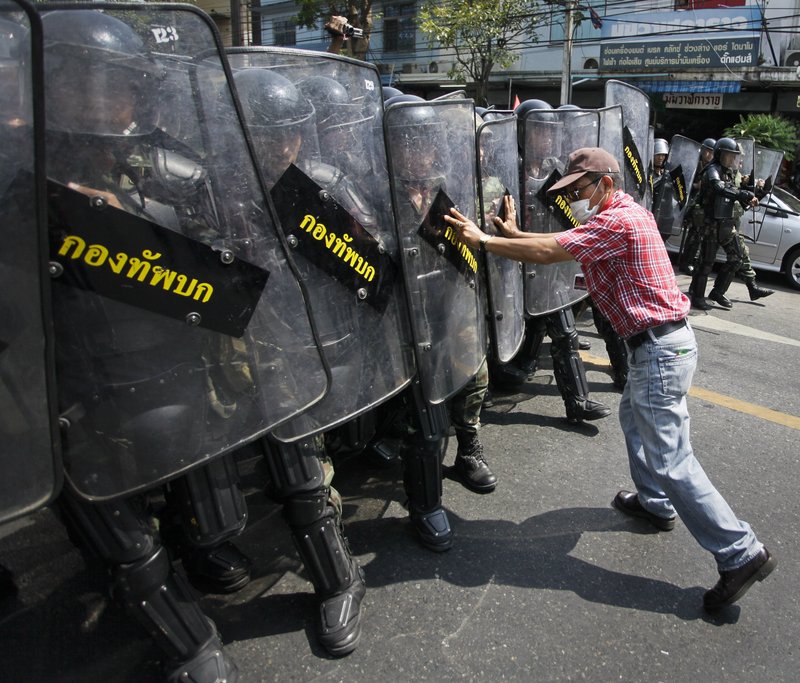BANGKOK — A crackdown on anti-government protesters in Thailand’s capital Saturday left at least 15 people dead and more than 650 injured, with no progress toward ending a monthlong standoff with demonstrators demanding new elections.
It was the worst violence in Bangkok since more than four dozen people were killed in an antimilitary protest in 1992. Bullet casings, rocks and pools of blood littered the streets where pitched battles raged for hours.
Army troops later retreated and asked protesters to do the same, resulting in an unofficial truce.
Four soldiers and 11 civilians, including a Japanese cameraman, were killed, according to the government’s Erawan emergency center.
The savage fighting erupted after security forces tried to push out demonstrators who have been staging a month of disruptive protests demanding that Prime Minister Abhisit Vejjajva dissolve Parliament and call new elections.
The demonstrations are part of a long-running battle between the mostly poor and rural supporters of former Prime Minister Thaksin Shinawatra, and the ruling elite they say orchestrated the 2006 military coup that removed him from power on corruption allegations.
The protesters, called “Red Shirts” for their garb, see the Oxford-educated Abhisit as a symbol of an elite impervious to the plight of Thailand’s poor and claim he took office illegitimately in December 2008 after the military pressured Parliament to vote for him.
Saturday’s violence and failure to dislodge the protesters are likely to make it harder to end the political deadlock. Previously, both sides had exercised considerable restraint.
Abhisit “failed miserably,” said Michael Nelson, a German scholar of Southeast Asian studies working in Bangkok.
Tanet Charoengmuang, a political scientist at Chiang Mai University sympathetic to the Red Shirts’ cause, said he expects the fighting will resume because the protesters are unafraid and the government refused to listen to them.
Abhisit went on national television shortly before midnight to offer condolences to the families of victims and indirectly assert that he would not bow to the protesters’ demands.
“The government and I are still responsible for easing the situation and trying to bring peace and order to the country,” Abhisit said.
Nelson said he had been hopeful the situation would calm down after the troops pulled back but that Abhisit’s TV appearance raised doubts because he seemed “totally defiant.”
The army had vowed to clear the protesters out of one of their two bases in Bangkok by nightfall, but the push instead set off street fighting. There was a continuous sound of gunfire and explosions, mostly from Molotov cocktails. After more than two hours of fierce clashes, the soldiers pulled back.
Send questions/comments to the editors.



Success. Please wait for the page to reload. If the page does not reload within 5 seconds, please refresh the page.
Enter your email and password to access comments.
Hi, to comment on stories you must . This profile is in addition to your subscription and website login.
Already have a commenting profile? .
Invalid username/password.
Please check your email to confirm and complete your registration.
Only subscribers are eligible to post comments. Please subscribe or login first for digital access. Here’s why.
Use the form below to reset your password. When you've submitted your account email, we will send an email with a reset code.